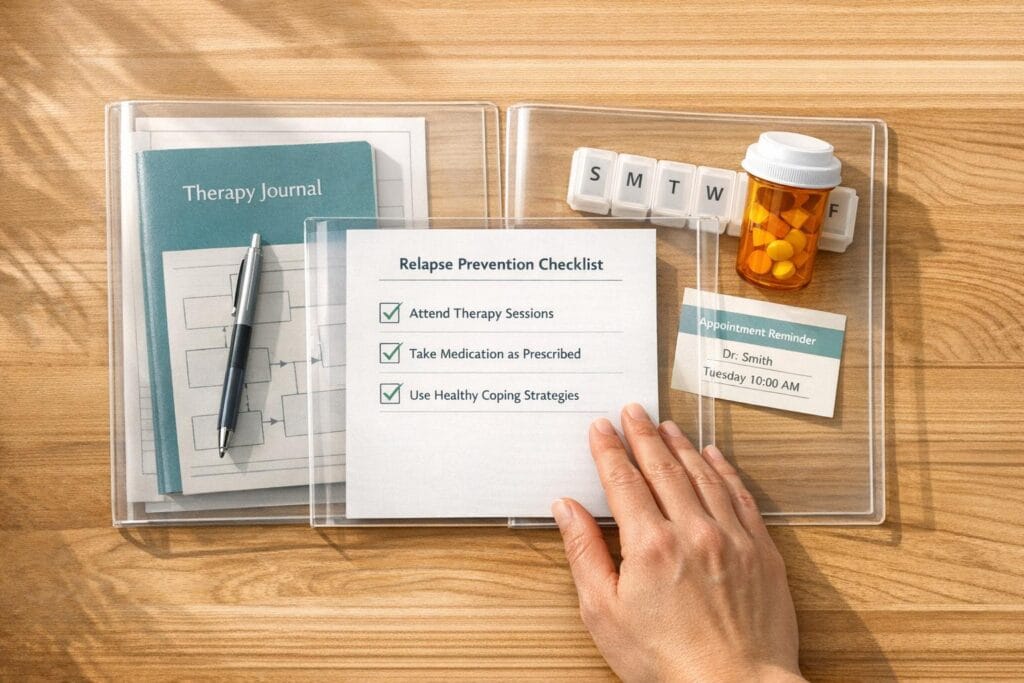Did you know that alcohol poisoning affects thousands of people each year in the United States, often requiring immediate medical attention? This serious condition can arise when a person consumes a large amount of alcohol in a short period, overwhelming their body’s ability to process it. Understanding the signs of alcohol poisoning is crucial for preventing tragic outcomes.
While many people are familiar with the typical effects of drinking, such as slurred speech or dizziness, alcohol poisoning is far more dangerous. It occurs when blood alcohol concentration reaches dangerous levels, potentially leading to unconsciousness, breathing difficulties, or even death. The severity of the condition often depends on both the amount of alcohol consumed and how quickly it was ingested.
It’s important to distinguish between ordinary intoxication and life-threatening poisoning. This guide will walk you through the key signs to watch for, risk factors, and essential steps to take in an emergency. By being informed, you can help protect yourself and others from this preventable yet dangerous condition.
Key Takeaways
- Alcohol poisoning is a medical emergency requiring immediate attention.
- Consuming large amounts of alcohol quickly increases poisoning risk.
- Recognizing symptoms early can prevent severe complications.
- Understanding the difference between intoxication and poisoning is crucial.
- Education and quick action are key to saving lives.
Understanding Alcohol Poisoning: Overview and Facts
Alcohol poisoning is a serious condition that occurs when the body can’t process the amount of alcohol consumed. It happens when blood alcohol concentration rises dangerously high, overwhelming the body’s ability to metabolize it. This can lead to severe health complications, including respiratory failure and even death.
Defining Alcohol Poisoning
Alcohol poisoning, also known as alcohol overdose, occurs when excessive alcohol intake disrupts brain functions that control vital organs. The brain struggles to regulate breathing and heart rate, leading to potentially life-threatening situations. A standard drink is defined as 12 ounces of beer, 5 ounces of wine, or 1.5 ounces of distilled spirits. Consuming multiple drinks in a short time, especially four or more for women and five or more for men, can lead to poisoning.
Impact on Health and Life
Alcohol poisoning can cause confusion, vomiting, and loss of consciousness. If left untreated, it can result in permanent brain damage or death. It’s crucial to recognize the signs early, as timely medical intervention can prevent severe outcomes. Many people mistakenly believe that passing out from drinking is normal, but it’s a sign of poisoning that requires immediate help.
Recognizing Alcohol Poisoning Symptoms
Identifying the signs of alcohol poisoning is crucial for preventing life-threatening situations. When someone consumes too much alcohol in a short time, their body may struggle to process it, leading to dangerous complications.
Physical Indicators to Watch For
One of the first signs of alcohol poisoning is confusion or disorientation. A person might also experience nausea and vomiting, which can lead to dehydration. Slurred speech, dizziness, and difficulty walking are common indicators that someone has had too much to drink.
Signs of Severe Overdose
In severe cases, a person may lose consciousness or have trouble staying awake. Their breathing might become irregular or slow, which can be life-threatening. Seizures, pale or blue-tinged skin, and a drop in body temperature are critical signs that require immediate medical attention.
If you notice any of these symptoms, especially in combination, it’s essential to act quickly. Alcohol poisoning can escalate rapidly, leading to coma or even death if not treated promptly. Always err on the side of caution and seek emergency help if someone shows signs of severe alcohol poisoning.
Differentiating Intoxication from Alcohol Poisoning
It’s crucial to distinguish between regular intoxication and alcohol poisoning, as the latter is a life-threatening condition requiring immediate medical intervention.
Common Drunk Behaviors
When someone is intoxicated, they may exhibit behaviors like slurred speech, dizziness, or impaired judgment. These signs are typically manageable and don’t usually pose a serious threat.
Critical Differences Revealed
Alcohol poisoning, however, presents more severe symptoms. A person may become unresponsive, experience irregular breathing, or have pale or blue-tinged skin. These signs indicate a medical emergency.
| Signs of Intoxication | Signs of Alcohol Poisoning |
|---|---|
| Slurred speech | Unconsciousness |
| Dizziness | Slow or irregular breathing |
| Impaired judgment | Pale or blue-tinged skin |
Recognizing these differences is vital for providing timely help. If you suspect alcohol poisoning, call emergency services immediately.
Risk Factors and Warning Signs of Alcohol Overdose
Understanding the risk factors and warning signs of alcohol overdose is crucial for preventing life-threatening situations. Several factors can increase the likelihood of an overdose, and recognizing them early can save lives.
Binge and High-Intensity Drinking
Binge drinking is a major risk factor for alcohol overdose. According to national guidelines, binge drinking for women is typically defined as consuming four or more drinks within two hours, and for men, it’s five or more drinks in the same timeframe. High-intensity drinking, or drinking large amounts in a short period, overwhelms the body’s ability to metabolize alcohol, leading to dangerous blood alcohol levels.
Individual Sensitivities and Environmental Influences
Individual factors such as age, gender, and body weight play a significant role in alcohol sensitivity. Younger people and those taking certain medications may experience more severe effects. Environmental factors, like drinking in a party setting, can also increase risk. Even moderate amounts of alcohol can be dangerous under certain conditions, such as when food consumption is low or when someone has a pre-existing medical condition.
Warning signs of an impending overdose include changes in body temperature, seizure activity, and irregular breathing. These symptoms indicate a medical emergency. Environmental influences, such as the setting and social pressure, can exacerbate risky drinking behavior, making it essential to be vigilant in such situations.
- Binge drinking increases the risk of overdose.
- Individual factors like age and gender affect alcohol sensitivity.
- Environmental influences can worsen risky drinking behavior.
- Warning signs include temperature changes and seizure activity.
Recognizing these risk factors and warning signs can help prevent alcohol overdose. Always seek emergency help if someone shows severe symptoms.
Steps for Immediate Emergency Response
When someone shows signs of alcohol poisoning, every second counts. Acting quickly and correctly can save a life. Here’s how to respond effectively in an emergency.
How to Assist Safely in an Emergency
If you suspect alcohol poisoning, call 911 immediately. Provide details about the person’s alcohol consumption and any medications they might have taken. While waiting for help, keep the person on their side to prevent choking on vomit. Monitor their breathing and stay with them—never leave someone unresponsive alone.
Actionable Dos and Don’ts
| DO | DO NOT |
|---|---|
| Call 911 right away | Give coffee or food |
| Keep the person on their side | Use a cold shower |
| Monitor breathing and response | Leave them alone |
Avoid giving anything by mouth and don’t try to sober them up with methods like hot coffee or cold showers. These actions can worsen the situation. Professional medical treatment is essential, even if symptoms seem to improve.
Helpful Prevention Strategies and Resources
Preventing alcohol-related emergencies begins with responsible practices and awareness. By adopting simple strategies, individuals can significantly reduce the risk of alcohol poisoning and its severe consequences.
Prevention Tips for Responsible Alcohol Use
- Drink in moderation: Limit yourself to one drink per hour to allow your body time to process the alcohol.
- Stay hydrated: Alternate alcoholic beverages with water to prevent dehydration.
- Avoid mixing substances: Never combine alcohol with medications or other substances.
- Eat before drinking: Having food in your stomach can slow alcohol absorption.
- Monitor your drinks: Be aware of what you’re consuming to avoid unintentional over-intoxication.
Support Networks and Helpline Information
If you or someone you know is struggling with alcohol use, there are resources available to help. The Substance Abuse and Mental Health Services Administration (SAMHSA) offers a national helpline at 1-800-662-HELP (4357). Additionally, organizations like Alcoholics Anonymous provide support groups and guidance for those seeking to manage their alcohol use.
Seeking help early can make a significant difference in preventing severe health issues related to alcohol use. Remember, responsible drinking and awareness are key to a safer and healthier life.
Conclusion
Recognizing the signs of alcohol poisoning is the first step in saving lives. This condition can quickly escalate from mild impairment to life-threatening situations, making prompt action crucial. The key differences between regular intoxication and a dangerous overdose lie in severe symptoms like irregular breathing, unconsciousness, and pale or blue-tinged skin.
In an emergency, every moment counts. Always call 911 if someone shows severe symptoms. Keep the person on their side to prevent choking and monitor their breathing until help arrives. Avoid giving them food, coffee, or medications, as these can worsen the situation.
Prevention is equally important. Drinking in moderation, staying hydrated, and avoiding binge drinking can significantly reduce the risk of an overdose. Educating yourself and others about the dangers of excessive alcohol use empowers everyone to make safer choices.
By staying informed and taking responsible actions, you can help prevent the tragic consequences of alcohol poisoning. If you or someone you know struggles with alcohol use, reaching out to organizations like SAMHSA or attending support groups can provide the necessary guidance and support. Remember, awareness and timely intervention are powerful tools in safeguarding health and saving lives.
FAQ
What is alcohol poisoning?
Alcohol poisoning occurs when the body consumes more alcohol than it can process, leading to severe and potentially life-threatening symptoms.
How can I recognize the symptoms of alcohol poisoning in someone?
Look for signs such as confusion, irregular breathing, vomiting, low body temperature, and difficulty staying awake. These can indicate a serious overdose requiring immediate help.
What should I do if someone shows signs of an alcohol overdose?
Stay calm and call 911 right away. Do not leave the person alone, and if they are unconscious, turn them on their side to prevent choking.
Can binge drinking lead to alcohol poisoning?
Yes, binge drinking, or consuming a large amount of alcohol in a short time, can quickly raise blood alcohol levels to dangerous heights, risking an overdose.
How can I prevent alcohol poisoning?
Drink responsibly, know your limits, and avoid high-intensity drinking. Eating food before drinking can also help slow alcohol absorption.
What role does mental health play in alcohol use disorder?
Mental health challenges can increase the risk of alcohol misuse. Seeking professional help and support networks is crucial for addressing underlying issues.
When should I seek emergency medical help for someone intoxicated?
If a person is unresponsive, has slow or irregular breathing, or shows signs of a seizure, call 911 immediately. These are critical signs of a potential overdose.


